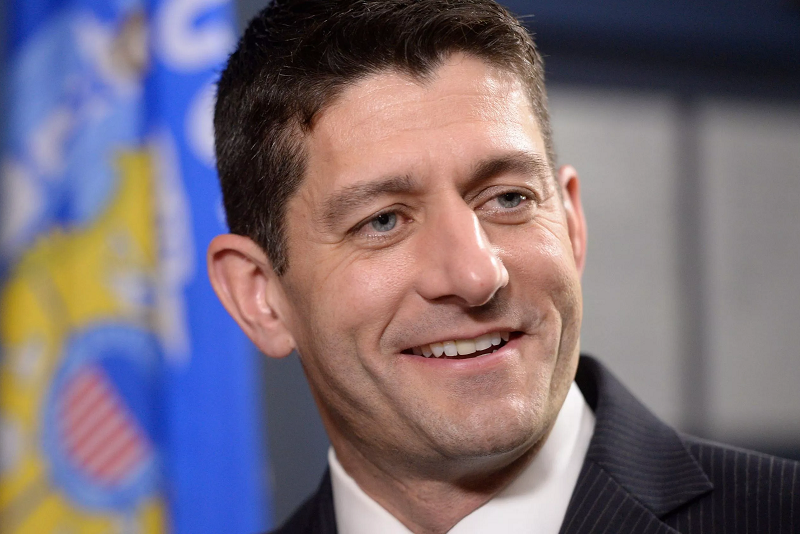BROWSE BY TOPIC
- Bad Brokers
- Compliance Concepts
- Investor Protection
- Investments - Unsuitable
- Investments - Strategies
- Investments - Private
- Features/Scandals
- Companies
- Technology/Internet
- Rules & Regulations
- Crimes
- Investments
- Bad Advisors
- Boiler Rooms
- Hirings/Transitions
- Terminations/Cost Cutting
- Regulators
- Wall Street News
- General News
- Donald Trump & Co.
- Lawsuits/Arbitrations
- Regulatory Sanctions
- Big Banks
- People
TRENDING TAGS
Stories of Interest
- Sarah ten Siethoff is New Associate Director of SEC Investment Management Rulemaking Office
- Catherine Keating Appointed CEO of BNY Mellon Wealth Management
- Credit Suisse to Pay $47Mn to Resolve DOJ Asia Probe
- SEC Chair Clayton Goes 'Hat in Hand' Before Congress on 2019 Budget Request
- SEC's Opening Remarks to the Elder Justice Coordinating Council
- Massachusetts Jury Convicts CA Attorney of Securities Fraud
- Deutsche Bank Says 3 Senior Investment Bankers to Leave Firm
- World’s Biggest Hedge Fund Reportedly ‘Bearish On Financial Assets’
- SEC Fines Constant Contact, Popular Email Marketer, for Overstating Subscriber Numbers
- SocGen Agrees to Pay $1.3 Billion to End Libya, Libor Probes
- Cryptocurrency Exchange Bitfinex Briefly Halts Trading After Cyber Attack
- SEC Names Valerie Szczepanik Senior Advisor for Digital Assets and Innovation
- SEC Modernizes Delivery of Fund Reports, Seeks Public Feedback on Improving Fund Disclosure
- NYSE Says SEC Plan to Limit Exchange Rebates Would Hurt Investors
- Deutsche Bank faces another challenge with Fed stress test
- Former JPMorgan Broker Files racial discrimination suit against company
- $3.3Mn Winning Bid for Lunch with Warren Buffett
- Julie Erhardt is SEC's New Acting Chief Risk Officer
- Chyhe Becker is SEC's New Acting Chief Economist, Acting Director of Economic and Risk Analysis Division
- Getting a Handle on Virtual Currencies - FINRA
ABOUT FINANCIALISH
We seek to provide information, insights and direction that may enable the Financial Community to effectively and efficiently operate in a regulatory risk-free environment by curating content from all over the web.
Stay Informed with the latest fanancialish news.
SUBSCRIBE FOR
NEWSLETTERS & ALERTS
Everything Wall Street Should Know About Paul Ryan - circa 2012
[Photo: by Jack Gruber / USA Today]
Paul Ryan enters the spotlight as Mitt Romney's vice presidential pick. Those who don't know Paul Ryan, a 7-term U.S. Representative from Wisconsin, may be surprised to meet the man who stands beside the Mitt.
A MAN OF TRADITION. True to his conservative roots, the stocks he owns include blue chips Apple, Exxon Mobil, General Electric, I.B.M., Procter & Gamble, Wells Fargo, Google, McDonald's, Nike, and Berkshire Hathaway, according to his latest disclosure filing. Similarly, he counts among his supporters employees of financial heavyweights Wells Fargo, UBS, Goldman Sachs, and Bank of America.
WHAT THAT MEANS.
- For his 2012 Congressional race, he raised about $179,000 from securities professionals - the single largest sector that donated money to his campaign.
- One of the biggest contributors was Elliott Management, Paul Singer's hedge fund. Dan Senor, recently a senior adviser to Elliott Management, was just named Mr. Romney's new foreign policy counsel.
- Mr. Ryan's issue with Dodd-Frank: he dislikes the provision that has the greatest support of the industry: a tool known as resolution authority, which gives the government the authority to dismantle a failing bank without wreaking havoc on the rest of the system.
AN EXCEPTIONAL MAN. What sets Mr. Ryan apart, however, is his loyalty to Ayn Rand and Milton Friedman, 2 figures long associated with free markets.
WHERE IT MATTERS.
- His vote in 1998 to repeal parts of the Glass-Steagall Act, allowing commercial and investment banks to merge.
- His 2008 vote in favor of the bank bailout - i.e., TARP or Troubled Asset Relief Program. Before the vote, he encouraged his colleagues in the House to vote in favor of it to avoid "this Wall Street problem infecting Main Street."
- As a member of the commission, he voted down the Simpson-Bowles deficit reduction plan, arguing that it did not go far enough in overhauling health care entitlements.
WILD CARD? After voting against Simpson-Bowles, Mr. Ryan later criticized President Obama for not supporting the deficit reduction plan, prompting Gene Sperling, director of the National Economic Council under President Obama, to say on CNN:
"Paul Ryan, talking about walking away from a balanced plan like Bowles-Simpson is, I don't know, somewhere between laughable and a new definition for chutzpah."
In addition, future voters face Mr. Ryan's approach to the debt ceiling. Last year, 3 months before the debt ceiling debate reached a peak, Mr. Ryan said that he was prepared to let the government default on its debt for at least several days if it would force Democrats to accept deeper cuts. He was not received well.
"I hear what G.O.P. support there was for Obama/Bowles/Simpson debt panel plan is collapsing thanks to Ryan Plan." -- James Pethokoukis, a columnist for the American Enterprise Institute, which has traditionally supported Mr. Ryan, sent this Twitter message in April.





